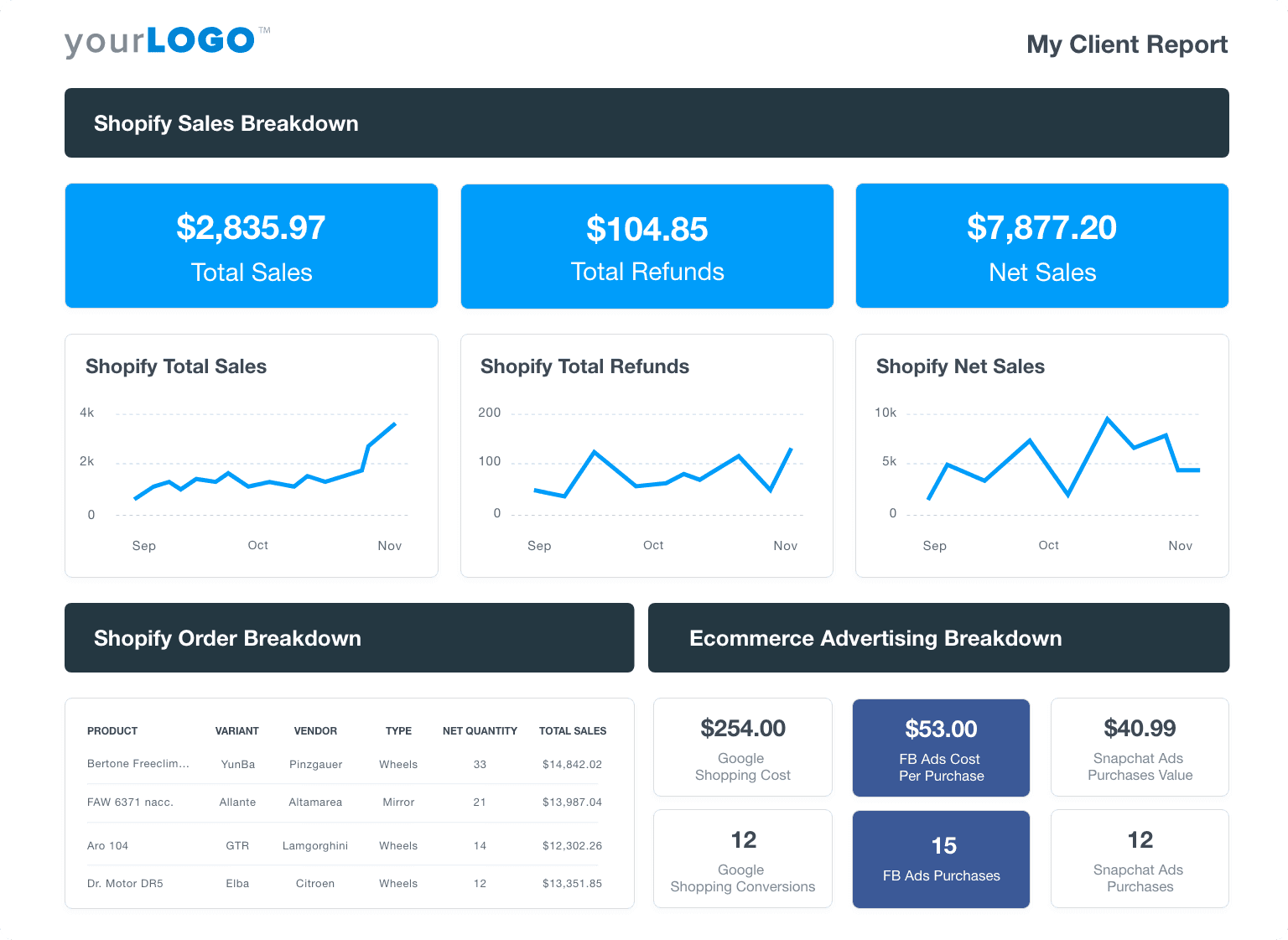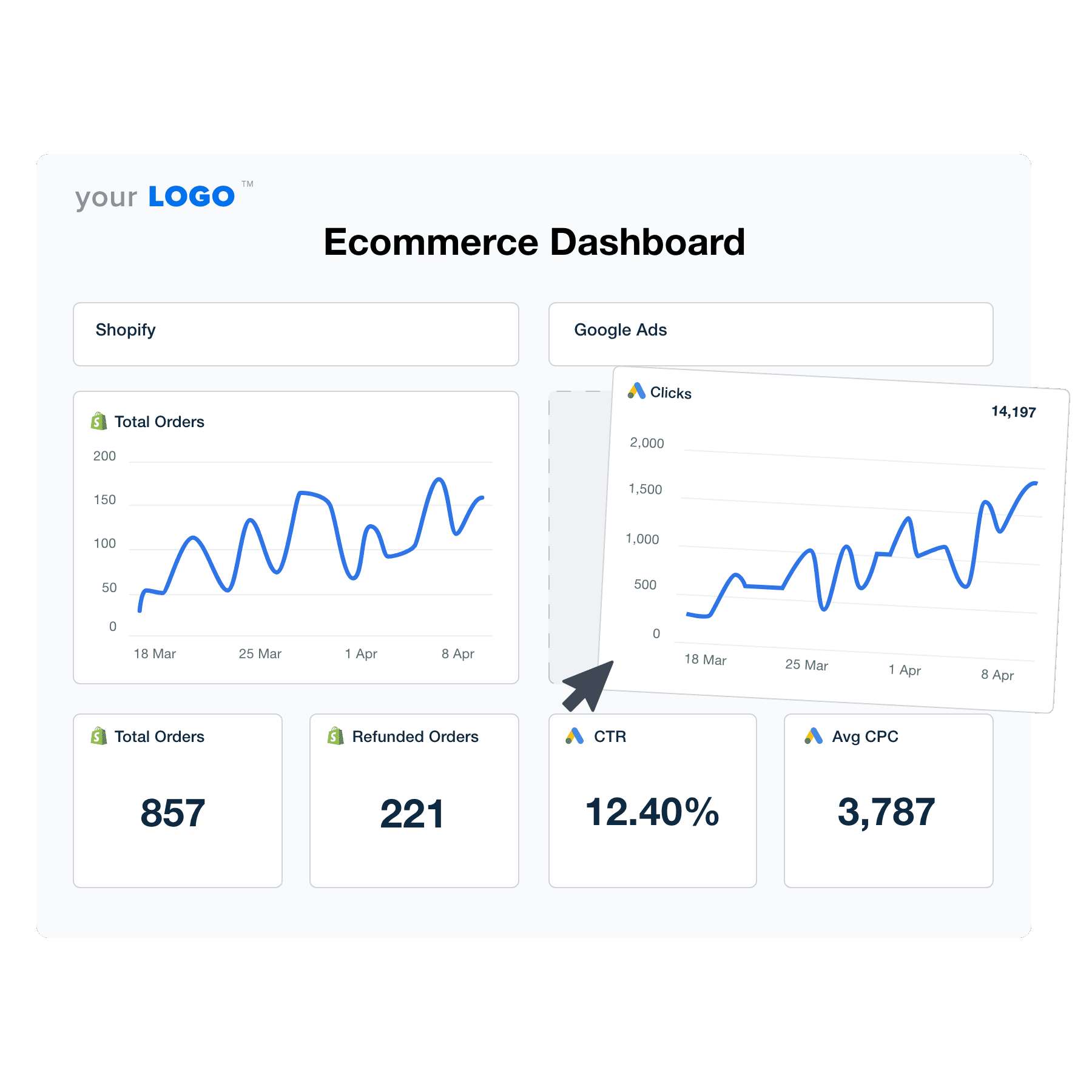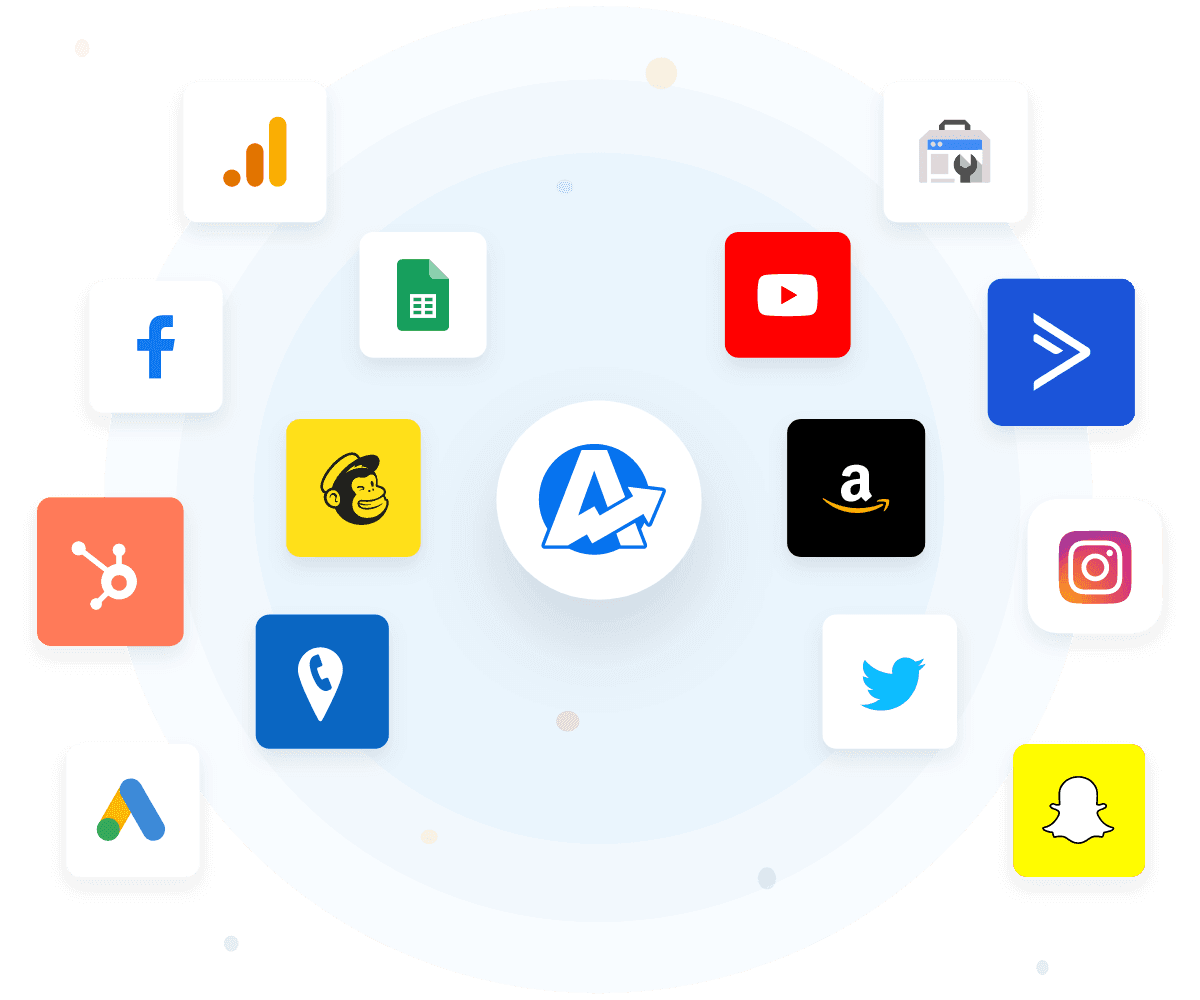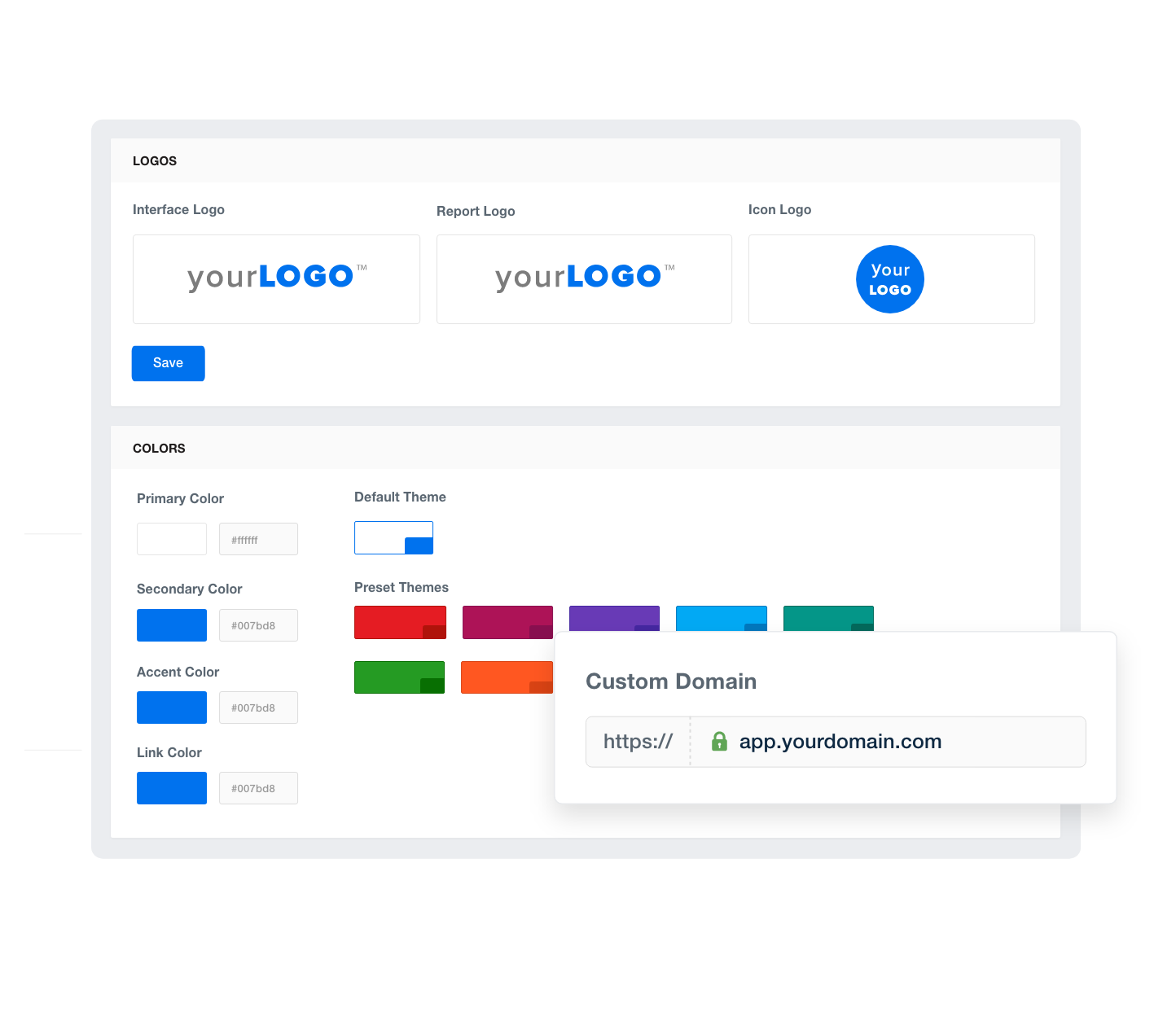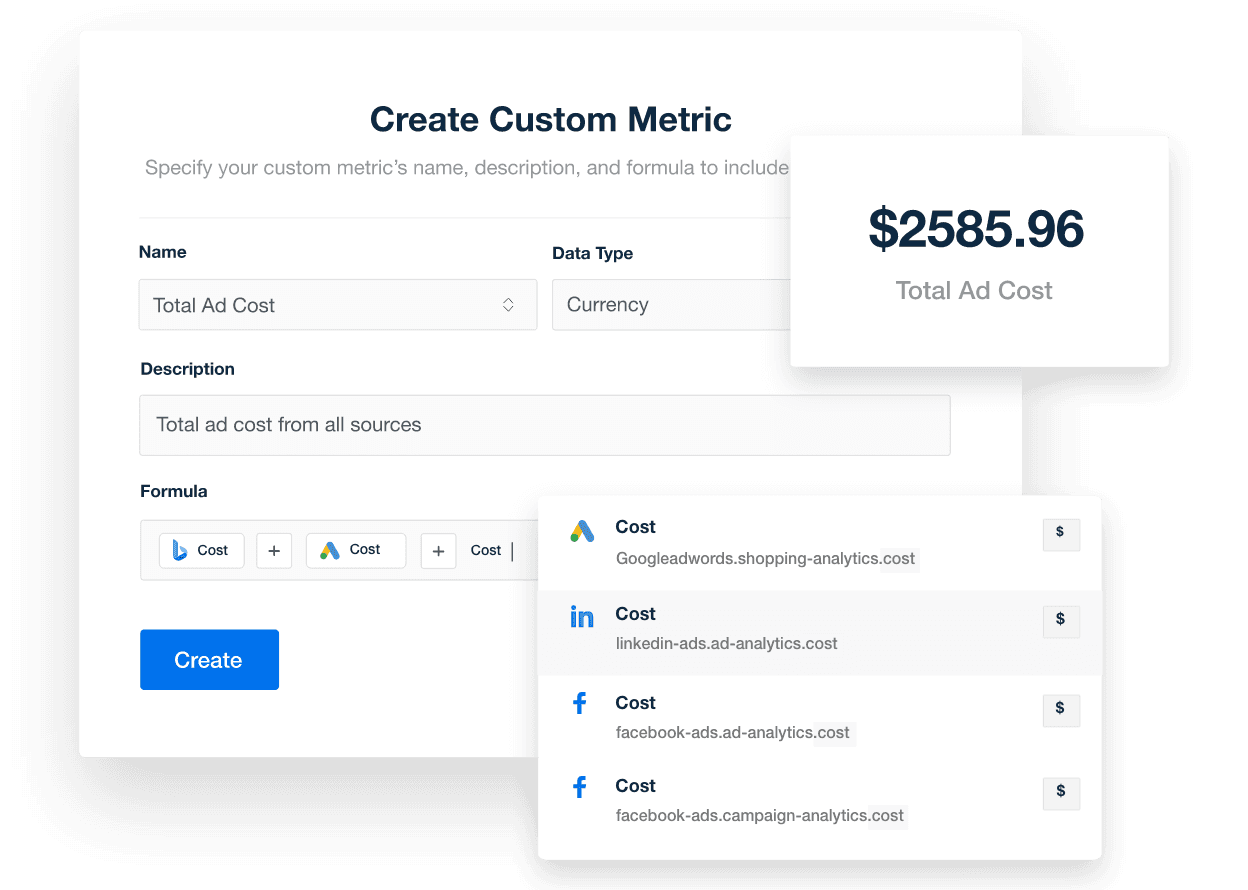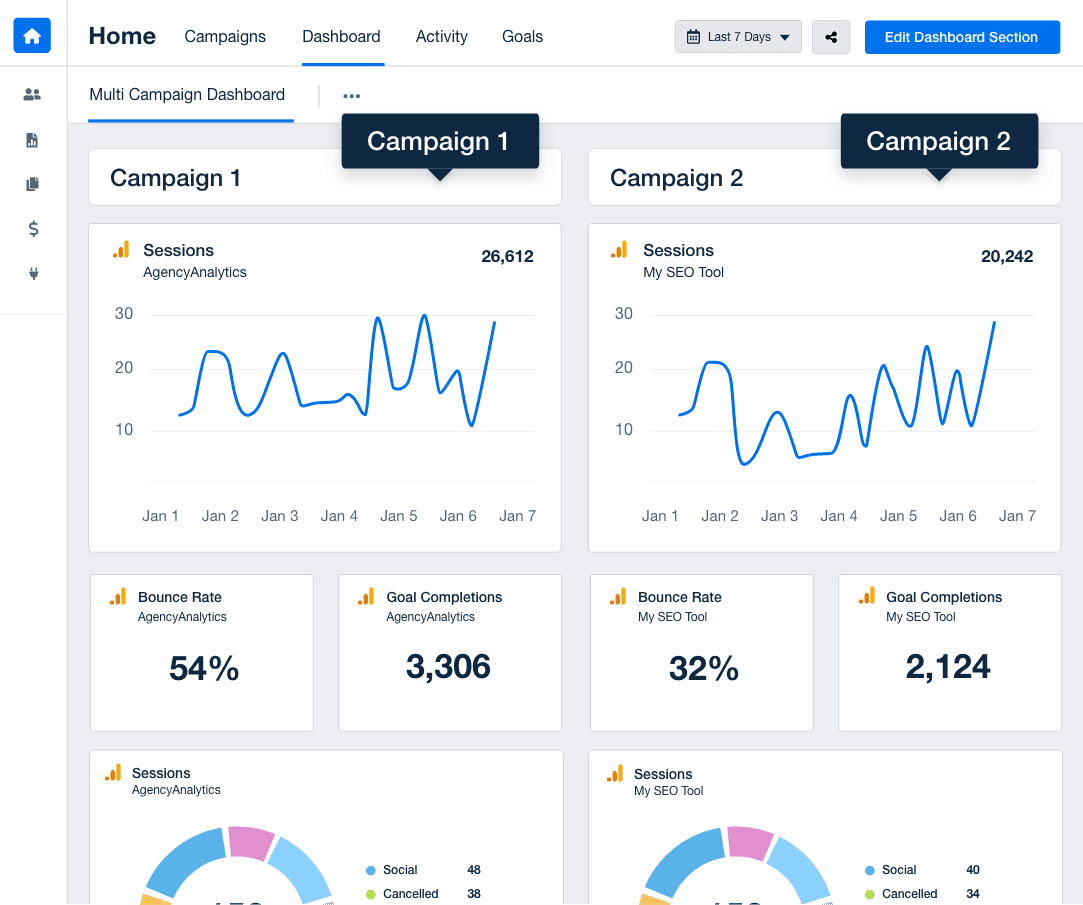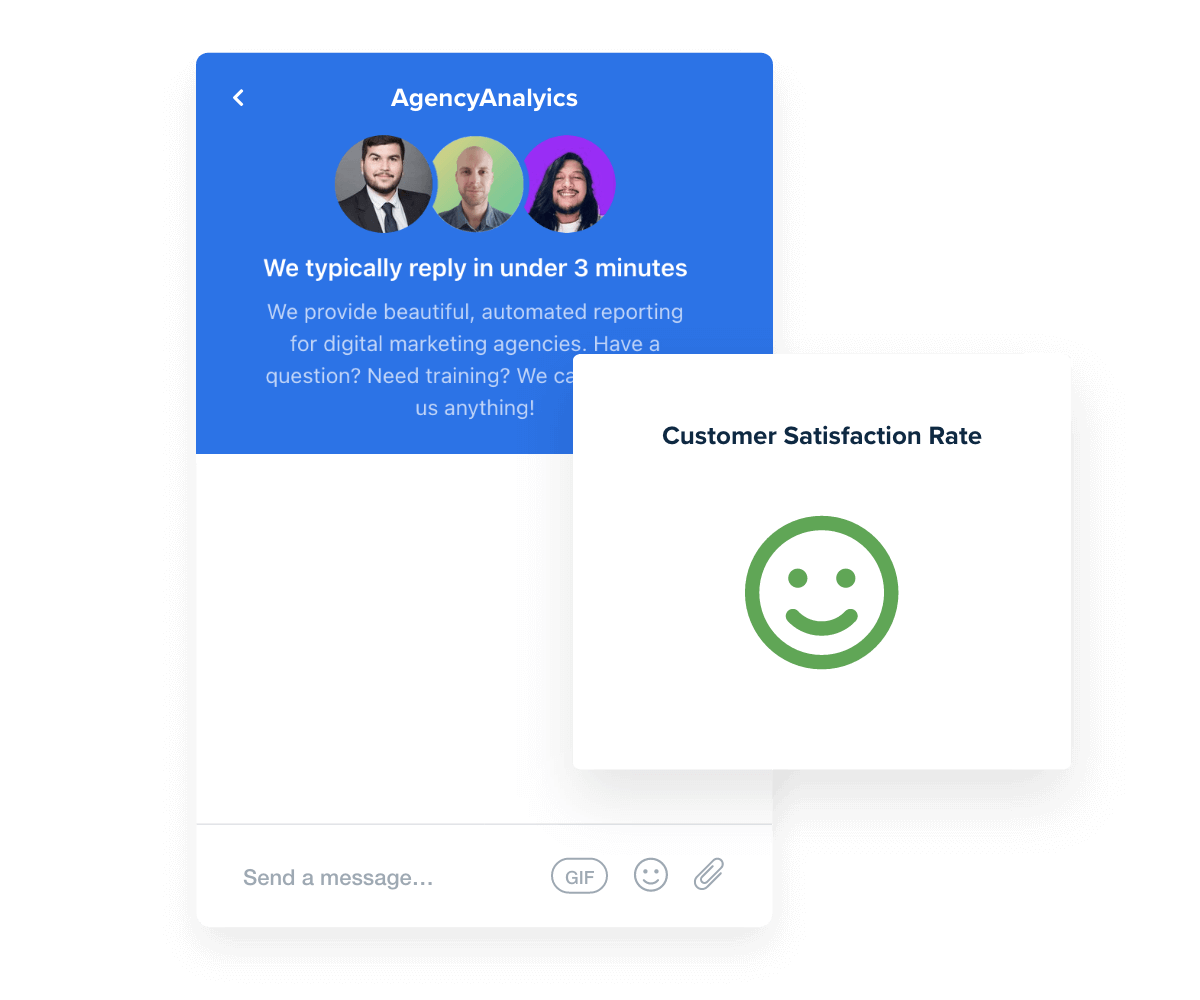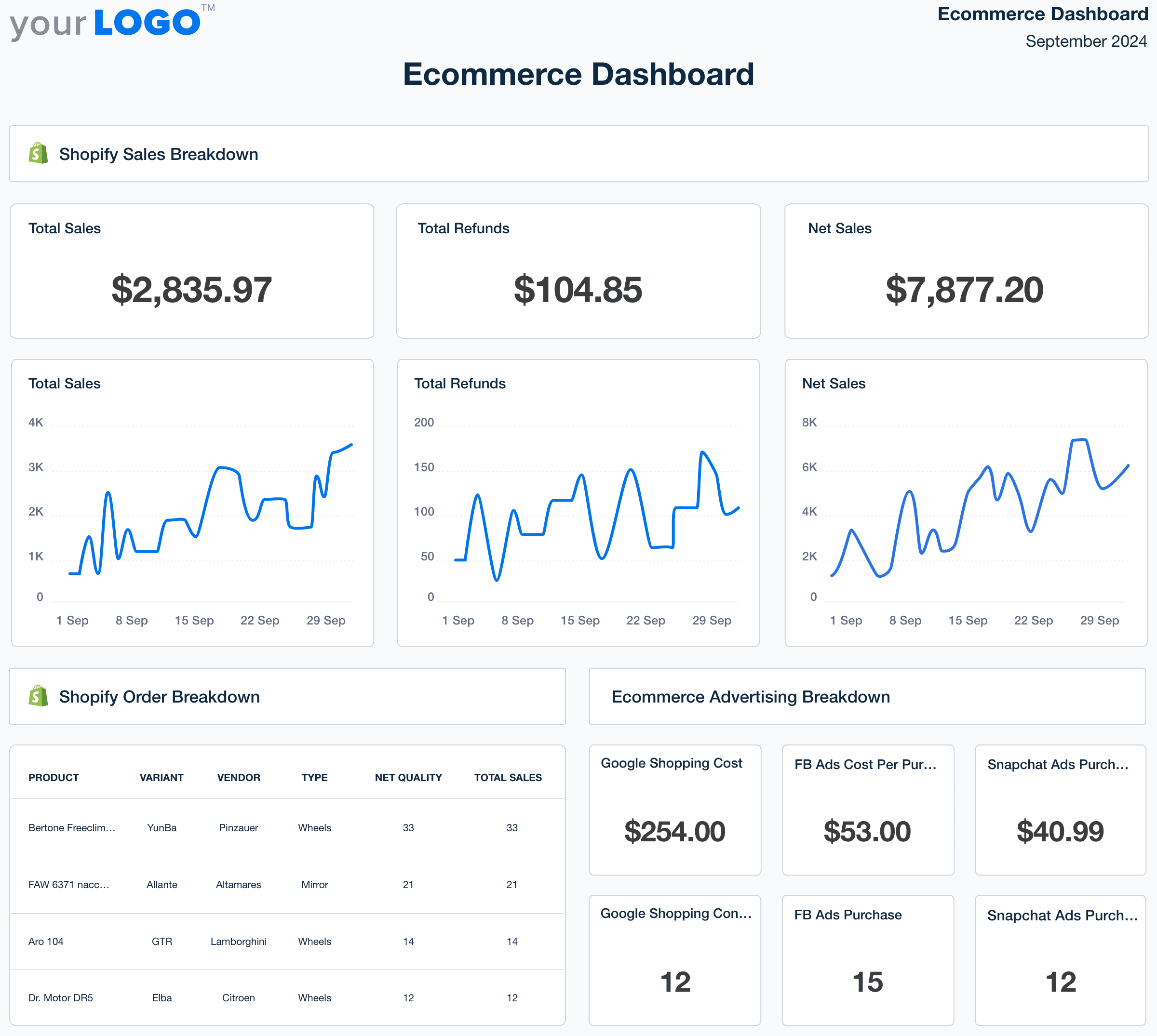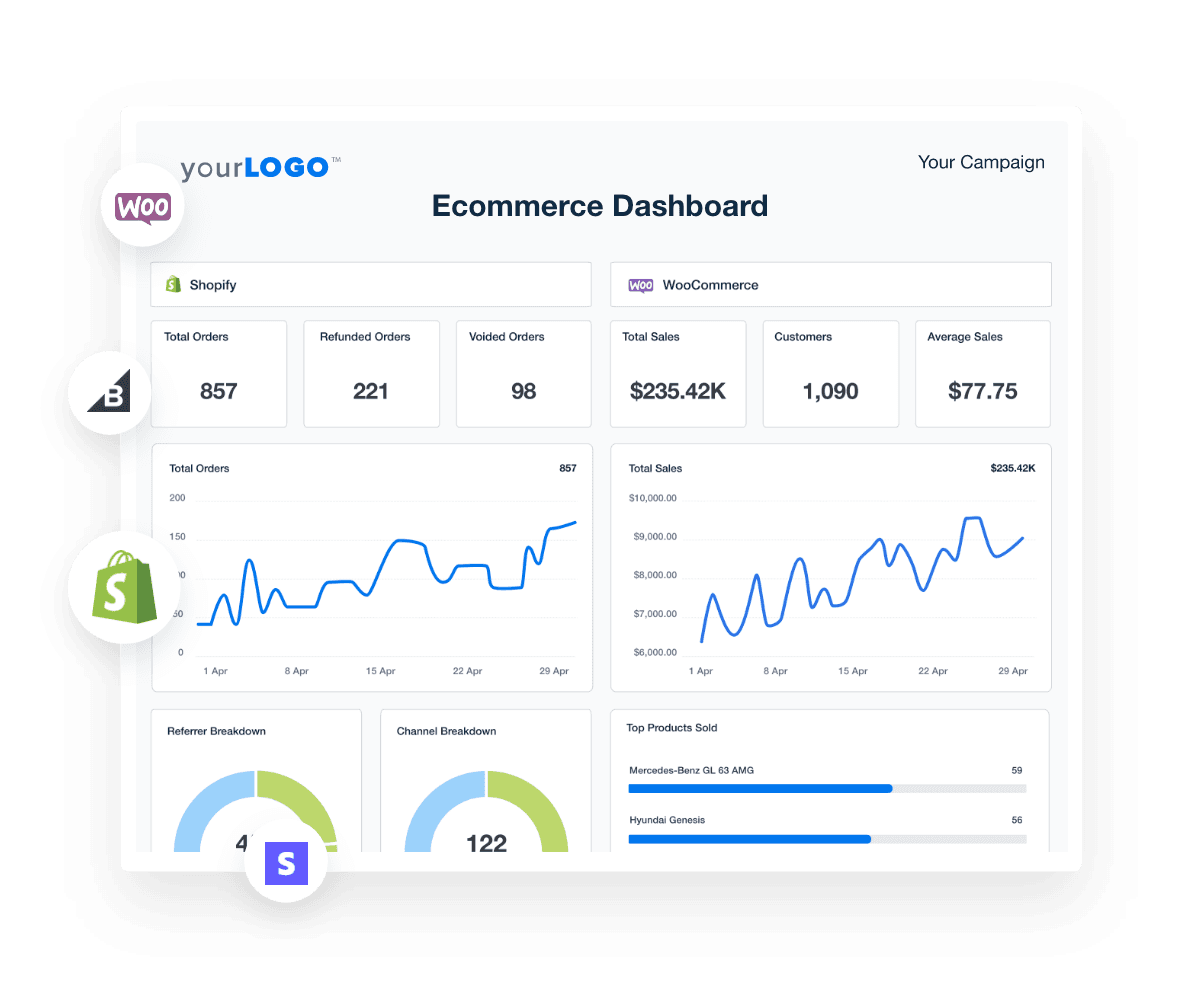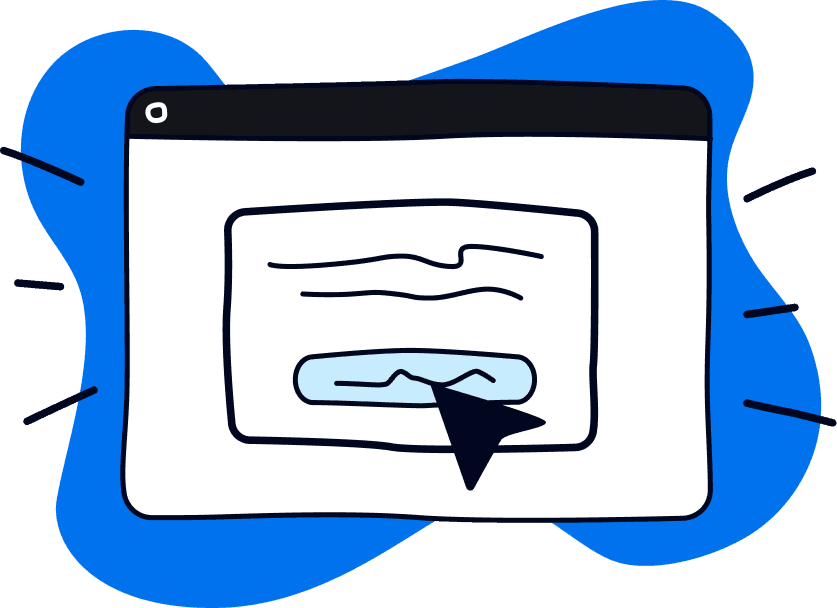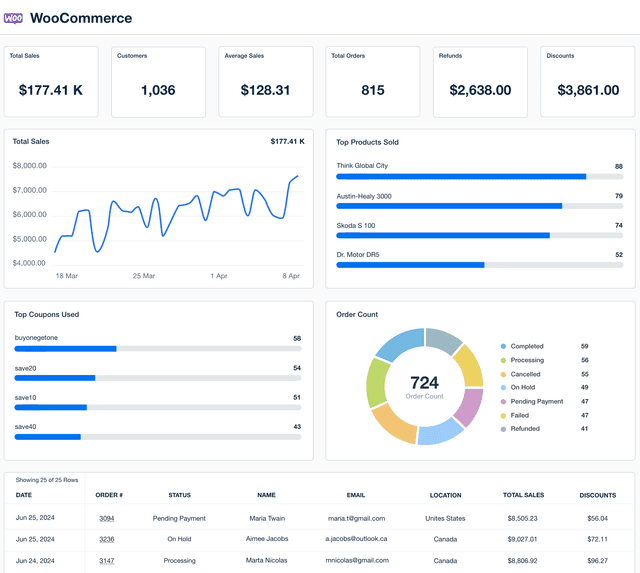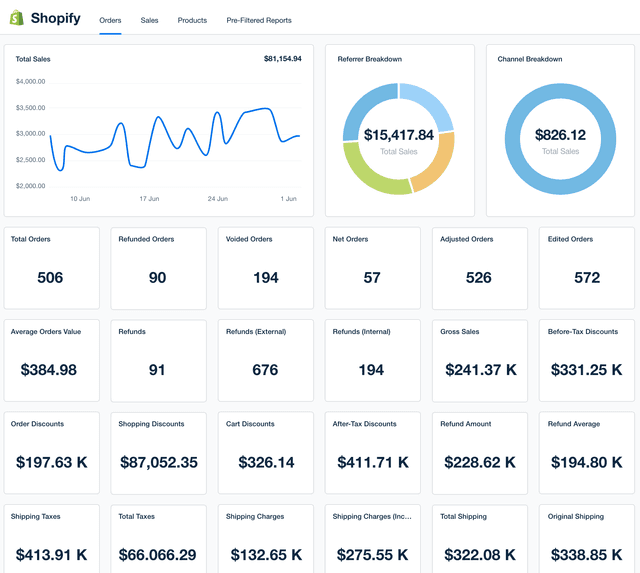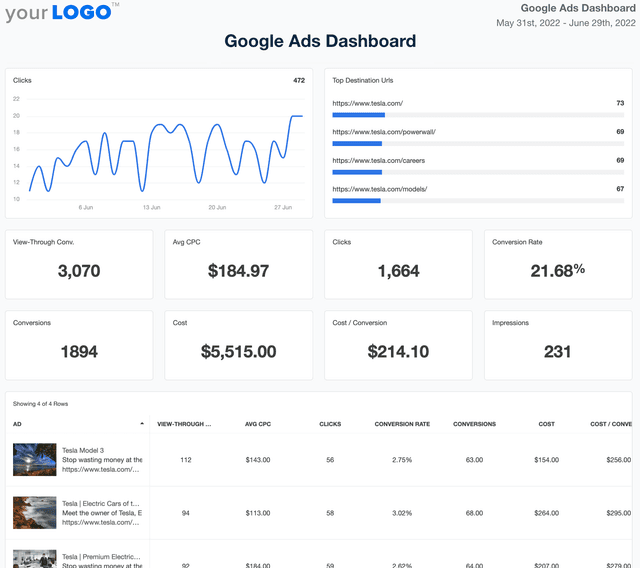Ecommerce Analytics Dashboard for Live Sales and Marketing Insights
Custom Ecommerce Dashboards as Unique as Your Agency
Customizable Ecommerce Analytics Dashboard for Smarter Performance Tracking
A white-labeled ecommerce analytics dashboard centralizes sales and marketing data, making it easier to track revenue, conversion rates, and customer acquisition costs. Customize widgets, white label dashboards, and tailor reports to highlight the most critical ecommerce KPIs.
Provide clients with a live, up-to-date view of their store’s performance while streamlining internal analysis. With automated reporting and 80+ integrations, agencies spend less time on manual tasks and more time optimizing campaigns to drive revenue growth.
Custom Ecommerce Dashboards as Unique as Your Agency
Instantly Access All Your Clients’ Ecommerce Data
Streamline your analytics by centralizing over 80 marketing platform integrations and data points in one dashboard. Save time and simplify comparisons across various platforms to swiftly pinpoint effective strategies and adjust as needed. Enhance campaign effectiveness and boost client satisfaction by leveraging comprehensive insights from multiple sources quickly and efficiently.
White Label Your Ecommerce Dashboards
Transform client reports with customized, white label dashboards that align seamlessly with your agency’s branding. Strengthen customer loyalty and enhance your professional image by consistently presenting high-level business metrics and critical insights. Use pre-built templates to monitor essential ecommerce metrics such as customer lifetime value, sales conversion rates, and total revenue. Deliver granular data and actionable insights across paid channels, social media platforms, and online business operations, all under your agency’s branded experience.
Provide Granular Insights With Custom Metrics
Maximize your ecommerce reporting by crafting custom metrics that blend data from 80+ integrations. Focus on critical metrics like sales conversion rates, customer behavior, and online store performance. Use these tailored insights to enhance your ecommerce dashboards, providing store owners with real-time data and historical analysis. Empower your clients with the knowledge to optimize traffic channels, improve visitor engagement, and boost repeat customer rates, all through a single branded dashboard.
Monitor All of Your Clients at a Glance
Create custom dashboards at the agency level to monitor key metrics across multiple clients. Incorporate ecommerce store performance, sales conversion rates, and customer insights into a single view. Leverage historical data and real-time updates to gain comprehensive insights into how many customers visit, shop, and return. These dashboards enhance your ability to analyze trends, refine strategies, and maintain a high-level overview of your client portfolio.
Customer Support is Our Top Priority
AgencyAnalytics is dedicated to supporting your agency's every need with 24/5 live chat services, promising response times of under three minutes. Whether setting up Google Ads dashboards or navigating complex analytics, our support team is here to ensure you deliver top-tier services to your clients, maintaining a satisfaction rate that exceeds 95%. At AgencyAnalytics, we're committed to providing immediate and quality support, helping you excel in every client engagement.
You care about your client’s success. We care about yours.
Report Smarter. Not Harder.
Streamline your monthly reporting by automatically integrating the most vital ecommerce metrics and 80+ marketing data sources into one comprehensive platform.
Gather essential metrics from Shopify, WooCommerce, Google Analytics, Facebook Ads, and more to provide clients with a complete overview of their ecommerce performance.
Customize ecommerce dashboard examples and effortlessly clone them to accelerate client onboarding. Leverage the time saved on client reporting and data visualization to expand your agency’s reach and capabilities.
Streamline Reporting and Focus On What Matters
Using ecommerce dashboards simplifies client reporting and campaign analysis, freeing up your agency to focus on what truly matters: creating successful campaigns and building client trust.
An automated reporting platform with customizable Ecommerce dashboard templates allows your agency to scale efficiently and create consistent, professional reports without having to start from scratch every time. This saves time and ensures that every key metric—from sales volume to paid traffic—stays front and center, delivering relevant data in a format that's easy to understand.
8 Sections To Include in an Ecommerce Analytics Dashboard
Let’s get into the heart of the ecommerce dashboard, focusing on three essential sections: Sales, Order Breakdown, and Ecommerce Advertising Breakdown. Understanding these areas is key to managing and boosting your clients' online sales. By keeping tabs on these key performance indicators (KPIs), you’ll spot trends, identify opportunities, and make informed decisions that help your clients succeed.
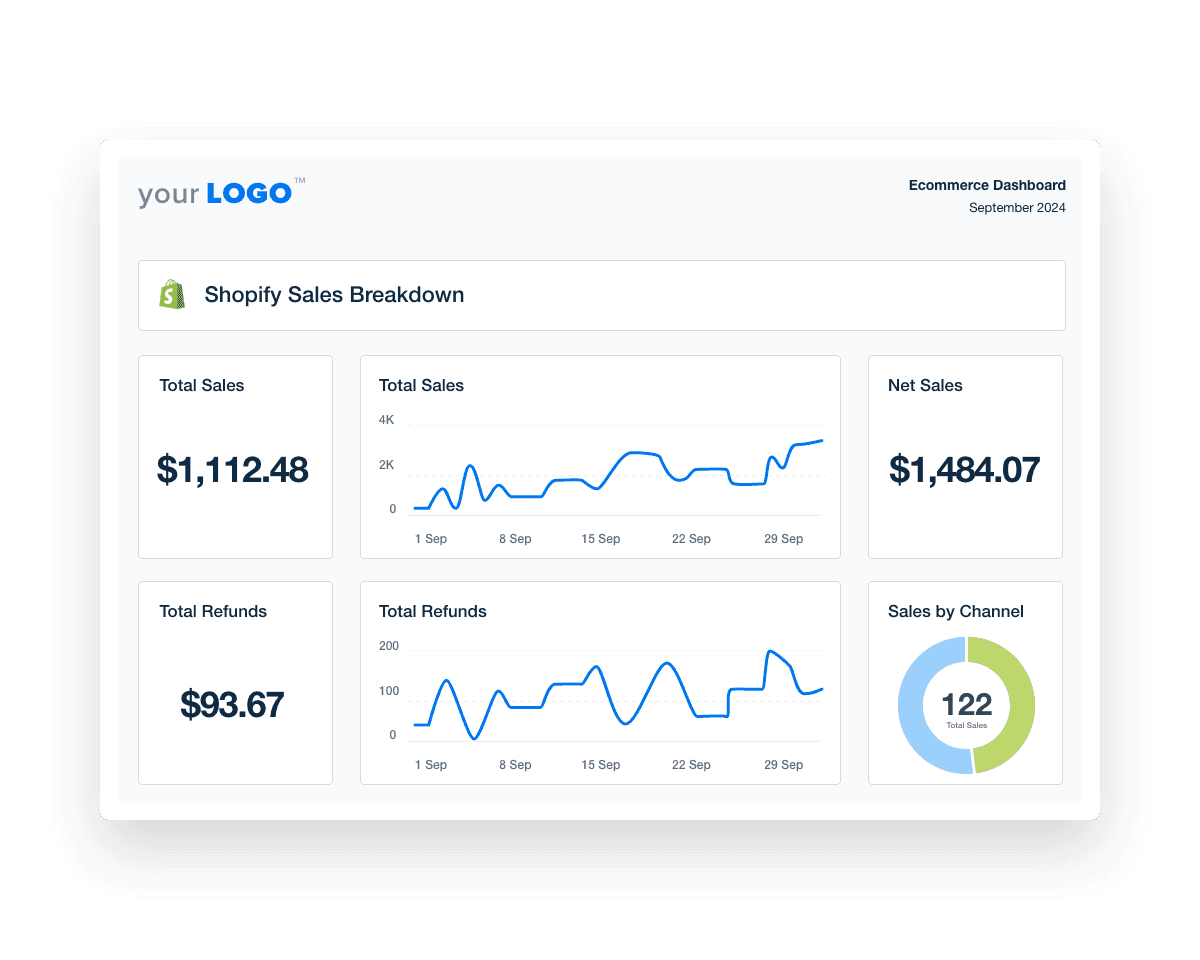
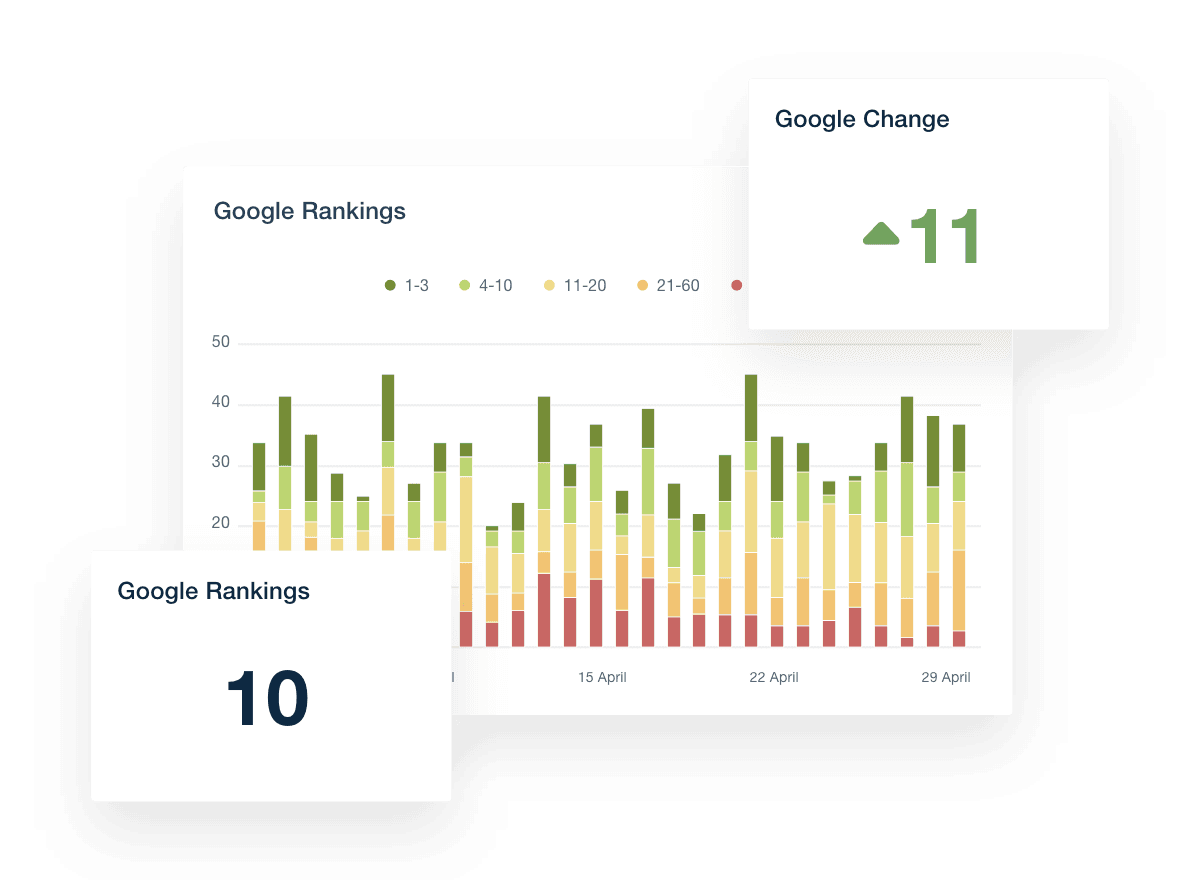
FAQs About Custom Ecommerce Dashboards
Still have questions about how to create and use custom Ecommerce Dashboards? Don’t worry, we’ve got you covered.
An ecommerce dashboard is a reporting tool that consolidates data from various marketing channels to help ecommerce businesses monitor performance. It offers a clear view of the sales funnel, from impressions to paying customers, making it easier to evaluate marketing efforts and revenue impact.
To build a white label ecommerce marketing dashboard, connect your clients’ marketing platforms—such as Facebook advertising, ecommerce platform, email marketing campaigns, and payment processors—and select from pre-built dashboard templates. On select plans, you can brand the dashboard with your agency’s logo, color scheme, and domain.
Track metrics like customer acquisition cost, conversion rates, average order value, and revenue. By combining ecommerce data with over 80 marketing platform integrations, the ecommerce marketing dashboard also monitors campaign performance across email marketing campaigns, Facebook advertising, and other channels to help ecommerce businesses measure success.
An ecommerce marketing dashboard improves decision-making by giving you a centralized view of performance across your sales funnel and marketing efforts. It highlights what’s driving results so you can allocate budget and resources more effectively across key marketing channels.
Yes. Tailor your ecommerce dashboard by selecting data sources, rearranging widgets, and highlighting the metrics that matter most to each client. Whether it’s revenue, customer acquisition cost, or campaign performance, the dashboard can be built around each ecommerce business’s priorities.
Top dashboard choices include the online marketing dashboard for digital marketing insights, the SEO monitoring dashboard to present SEO analytics, and the website analytics dashboard to showcase web analytics outcomes. Agencies often finalize reports using the white label PPC dashboard for PPC summaries and the social media reporting dashboards to capture social media performance.
See how 7,000+ marketing agencies help clients win
Free 14-day trial. No credit card required.


